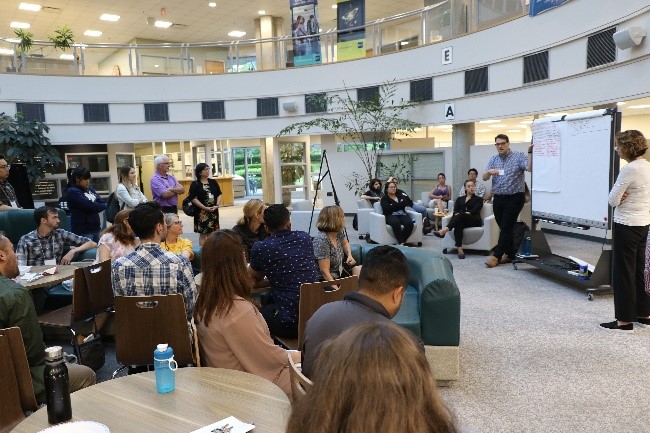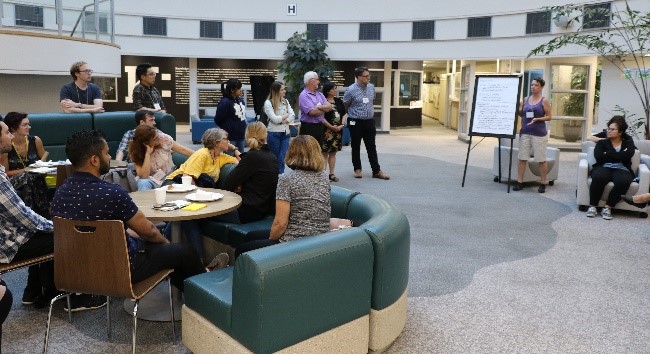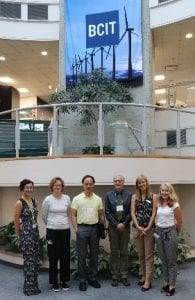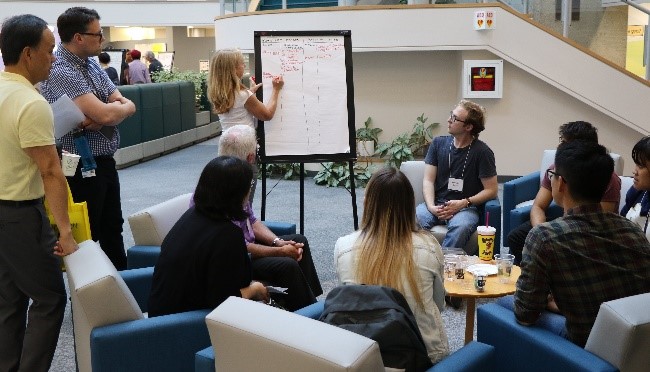An environmentally-focused workshop bringing together, students, industry experts, and researchers was held at the BCIT Center for Applied Research and Innovation (CARI) on July 9 to discuss an important topic that sparks the curiosity of many: Where Does Your Recycling Go?
The purpose of the workshop focused on two objectives: identifying the critical uncertainties and questions in our own recycling processes; and then identifying what can be done to find answers to those questions.
BCIT Project Leader Joey Dabell’s Applied Research project on Building Recycling Pathways Towards Personal Net Zero and Informing Recommendations for Policy Makers: A Student-focused Citizen Research Approach provided a “citizen research” perspective to answer what a motivated, responsible individual can do to reduce their own footprint.
Joey shares, “This workshop focused on our waste footprint, and will proceed with an investigation of where our recycling goes from receptacle to its final disposition”
SEE MORE: Two BCIT students are cultivating the circular and repair economy in Metro Vancouver

A question that is frequently asked by the community
Within two weeks of announcing this workshop, there were already dozens on the waitlist.
“The question of what happens to my recycling comes up regularly,” says Alan Scales, City of Burnaby Business Manager, Solid Waste and Recycling Division. “So it was nice to have a workshop that educates, engages, and supports the understanding of issues raised by our community.”
As part of the workshop, a summer student research project that involved students as “investigative researchers” was introduced. Summer research student assistants will be assigned two typical household waste items to investigate their path from the consumer to the item’s final resting place, such as the landfill or becoming a recycled product. The ultimate goal of the workshop is to provide these students with some context and a little experience from a broader community that will help them on their way with their research.

The workshop was not about providing all the answers, nor was it about addressing the typical broader issues such as stream sorting or contamination, or life-cycle analysis considerations. We know that much of what we are undertaking here may have been done before, but the overarching research itself also has several goals including: improving recycling literacy, understanding the efficacy of a citizen-centric research approach, and learning how to design and disseminate an effective methodology to investigate a problem of interest.

The research project Building Recycling Pathways Towards Personal Net Zero and Informing Recommendations for Policy Makers: A Student-focused Citizen Research Approach was funded by BCIT Institute Research Funds which allows BCIT employees to pursue research initiatives for which they are unable to obtain funding from other sources or allow researchers to leverage institute funds to obtain research funding from external agencies and partners that they would otherwise be unable to access.
Last photo(l-r): BCIT Applied Research project team and industry experts: Maria Bushmin, BCIT SMART Summer Research Assistant, Joey Dabell, BCIT SMART Project Leader and Researcher, Andrew Marr, Director of Solid Waste Planning, Metro Vancouver, Alan Scales, Business Manager, Solid Waste and Recycling Division, City of Burnaby, Sandra Jette, BCIT Applied Research Liaison Office, and Joanne Turnbull, BCIT Operations Manager Facilities.
Have you subscribed? Sign-up to receive the latest news on BCIT.
